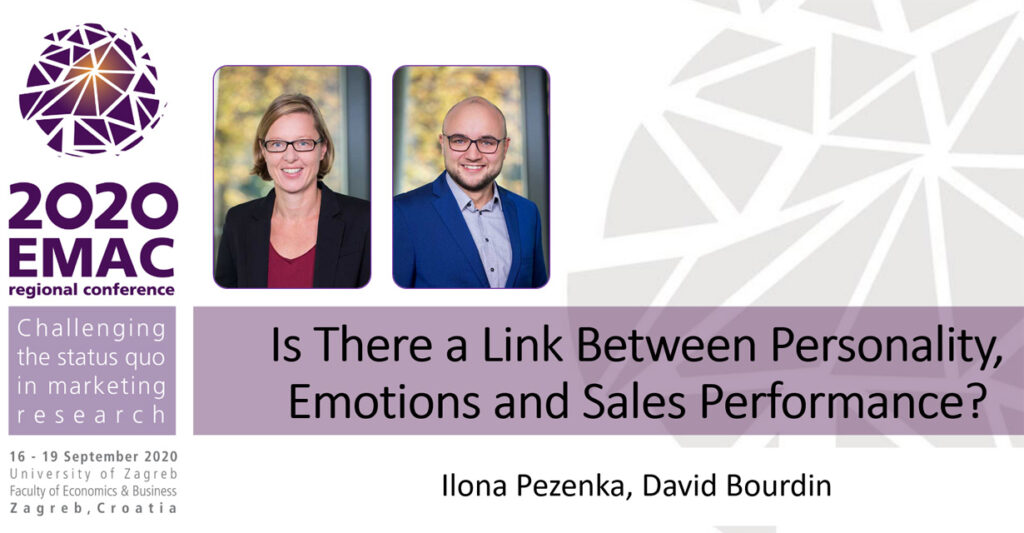David Bourdin, Teaching & Research Associate at the Competence Center for Marketing of FHWien der WKW, presented current marketing and sales research projects at EMAC 2020.
After a rigorous review process, over 120 researchers were invited to present their research results virtually at the 11th Regional Conference of the European Marketing Academy (EMAC) from September 16 to 19, 2020. FHWien der WKW was well represented with three presentations by David Bourdin, Teaching & Research Associate at the Competence Center for Marketing, and his co-authors. In addition, the young researcher served as session chair and moderated the “B2B Marketing” track.
Facial recognition technology decodes emotions in sales conversations
First, David Bourdin presented the results of the joint research work with Ilona Pezenka, Senior Researcher at FHWien der WKW, on “Is There a Link Between Personality, Emotions and Sales Performance?”. They analyzed sales conversations with automated face recognition technology. When salespeople were associated with personality traits such as openness and tolerability, the buyers assessed the sales talk more positively. Conscientiousness, extraversion and emotional stability had no significant effects. Joy on the part of the sellers played an important role as a moderator, which could partly increase or decrease these effects named above.
Accents influence customer participation
Bourdin also presented the study “The Relationship between Service Staff Accents and Customer Participation”, which he conducted with Christina Sichtmann, Associate Professor at the University of Vienna. They found that an unfavorable foreign accent of a service professional has a negative impact on customer willingness to actively participate in the service process. In contrast, an accent perceived as positive did not significantly affect customer participation. The acoustic comprehensibility of the staff as well as the perceived attractiveness and dynamics of the person due to their accent played an important role.
Country stereotypes determine brand perception
In his third contribution, Bourdin presented the project entitled “The Compensatory Influences of Country Stereotypes and the Global/Local Nature of Brands on Consumer Responses”, in which he collaborated with Georgios Halkias, Associate Professor at the Technical University of Munich, and Attila Yaprak, Professor at Wayne State University in Detroit. In a three-country study, they examined the impact of country stereotypes on brand perception. The results show that global brands, such as Milka, can benefit from strong positive associations with a certain country (e.g. with Austria seen as “warm-hearted” or “well-intentioned “), regardless of the consumers’ associations with the brand’s country of origin (residence of the company headquarter).
David Bourdin’s participation in this year’s EMAC Regional Conference has enabled FHWien der WKW to gain innovative ideas for further research projects, to establish new contacts with researchers at international universities, and to strengthen FHWien der WKW’s reputation in the scientific community.
>> Find more information about research in communication, marketing & sales at FHWien der WKW here
>> Find more information about the European Marketing Academy (EMAC) here
